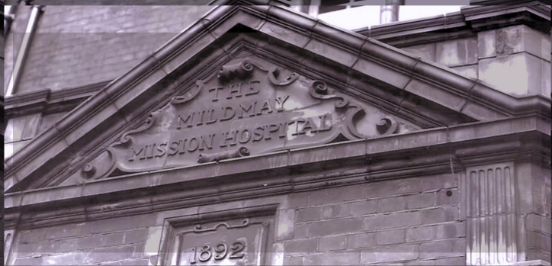Taking Labour’s Dare – Darzi lays the State of the NHS bare!

Azsvin Mariathasan
Part One – The Report
The National Health Service. To the public, an organisation dear to the heart of British culture. To doctors, the cause of many sleepless nights. To politicians a nightmare of which there is no escape. The organisation is riddled from top to bottom with diseased structural faults that to the untrained eye lack ailment or cure.
Fortunately, the new Labour government has found an ophthalmologist in Lord Darzi of Denham and his new report on the NHS. So, what does this report say? Is it any different from the other Darzi reports? Is there a Labour plan for the NHS? Well let’s find out!
Following the Labour Party's political upheaval of the electoral map in the July General Election, Wes Streeting as Secretary of State for Health and Social Care commissioned an independent investigation of the NHS by Lord Darzi. A former Labour Parliamentary Under-Secretary for the Department of Health under Gordon Brown's GOAT era (Government of All Talents – this term was created before the Tik Tok epoch) in 2008. Under this role Darzi has further published many more reports and reviews into the state of the NHS and potential fixes, which have all received various levels of uptake from policymakers.
The 2024 Report itself gives a brutally honest look into the NHS. Waiting times have “ballooned”; productivity is “too low”, and A&E is in an “awful condition.” More depressing is Darzi's declaration that this “critical condition” the NHS finds itself in has been built up over 10 years. Emphasis is put on improvement likely to come beyond a parliamentary term.
Keenly is emphasis put on the managerial structure of the service. Following a set of restructures beginning in 2012 that largely consisted of hiring, firing and rehiring management. The NHS lacks a clearly defined bureaucratic structure. This pathology presents itself with duplication of efforts within the current system. Occurring between Integrated Care Boards (ICBs – a collection of local officials involved with the big public health decisions) and the Service Providers (the hospitals and clinics covered by the ICB).
Unlike the Darzi reports of Labour government’s past, this report was meant to inform rather than prescribe. That said, some ‘themes’ were offered to help guide Streeting’s soon to come 10-year plan in the spring: homing in on a “tilt to technology”; bringing “care closer to home; and building a “neighbourhood NHS”. Darzi espouses the right words but as with all policy, the devil will be in the detail. Much of the themes are aligned heavily with Darzi’s recommendations in his previous Next Stage Review report. Come spring we will have a much clearer indication if Darzi’s pointers have finally been taken up by the Westminster establishment.
Coming in at 133 pages, the Darzi report is no light reading. Truthfully, the report doesn't tell us anything we don't already know. Both as medical students and members of the public. Elongated waiting times have been the ire of press and publicity since the dawn of the health service. A crumbling social care system is not news to anyone who's had the troublesome task of looking after their elderly loved ones. Nor do the mentions of the lacklustre IT systems or poor community care shock us as students with first-hand experience. Darzi's prognosis of a critical condition has been made front and centre for years now, especially in the chaos of Covid. So why this report? Why now?
The cynical mind may note this report seems to serve various political roles: placing the blame solely and squarely at the failings of a flailing Tory government that has now comfortably assumed opposition is to the Labour party’s political benefit, no doubt. By admonishing the austerity-heavy Conservatives of the early 2010s so harshly, Labour have attempted to set an understanding that these repairs may extend beyond this election cycle.
Should Streeting’s 10-year plan for NHS reform fall flat just like Theresa May’s 10-year plan before it, you may likely hear Labour MPs pointing excitedly to Darzi’s exact words: “It is unlikely that waiting lists can be cleared and other performance standards restored in one parliamentary term.”
It is a common understanding in Westminster that come the next election, the Labour Party will be held accountable on the NHS, more so than any other issue. A flawed understanding emerged at some point across the clinician community that our fight for securing the future of a National Health Service and Free at the Point of Use care ended with the much-needed ejection of a clownish clump of MPs that made up the last government.
This is not true. While a change in government has given a desirable breath of fresh air, readers should never forget we are still dealing with politicians. Irrespective of political colour, we should be prepared to talk to Labour with the same ferocity we gave the Conservatives. But not every interaction with the political class has to be a tooth and nail fight!
Part Two - The Opinion
Recently, I had the opportunity to speak to Ben Coleman MP of Chelsea and Fulham. Elected to this parliament as a Labour MP and currently sitting on the Health and Social Care Select Committee. A sharp Member of the House by all measure, he was extremely passionate on the issues of the NHS. He was more than willing to listen to concerns about the NHS, of which I made representative of the concerns of the medical profession as a whole. What came after my query is what reassured me the most.
The room, full mostly of students of politics, International Relations and other adjacent studies, was lit up with a fervour of health-related questions. An international master’s student from Turkey was keenly suggesting means of NHS reform. Questions came on how to make staying in the NHS seem more enticing to us against the lure of practising medicine on the sunny sands of Australia. There is a body of the political community that want to listen to our concerns. It is our duty as future clinicians to seek it.
I offered a scenic tale of collaboration between policy makers and clinicians. Sadly, there are many more which are less than encouraging to read through. Situations where clinicians have found themselves used by politicians as a smoke cover for poor policy. Collaboration is key but never without caution.
We as medical students and future clinicians are uniquely positioned at the precipice of a political tug of war like no other: the fight to save the NHS from its ‘critical condition’. Make no mistake, it is dying! From the speciality bottleneck to the chronically overworked staff.
These terms come up on the news in infrequent bursts on the dedicated NHS segment we’ve come to expect on BBC News at 10. But to us they have real meaning. They represent a real threat to our health service we so belittlingly love. One we love in spite of the questionable pay and strenuous hours. One we love for what it offers for the patients we care for!
Some may look at the state of the health service and hear the death knell. The end of a 76-year experiment that overstayed its welcome. Clawing back on socialism gone mad! We, with our direct experience of the field, know this not to be true. Our system may not be perfect but it’s the best we have and it is worth fighting for!
One can look to countries that lack the commitment to a Free at The Point of Use Care and see the inhumanity and bureaucracy that follows. From insurance companies to exorbitant bills. We hear political sound bites of our system being the envy of the world! It is our duty to keep it that way!
The Darzi report is noble in its efforts to identify the problems in the NHS, but it will take more to protect our NHS. The solution needs policy makers to shift their thinking but it will also need clinicians to convince them.
The NHS is a system worth fighting for. It has its flaws, but any alternative is far worse. Even with our busy schedules, it is our responsibility to make time to look after the service that gives us the opportunity to look after our patients. Lack of awareness of policy failings of the last decade has cost lives. The reset of political fates this year has brought us a unique opportunity. With just a pinch of political intrigue to the mechanisms of our health service; choosing to be knowledgeable as opposed to uninformed: perhaps we can resuscitate the NHS out of its critical condition!




